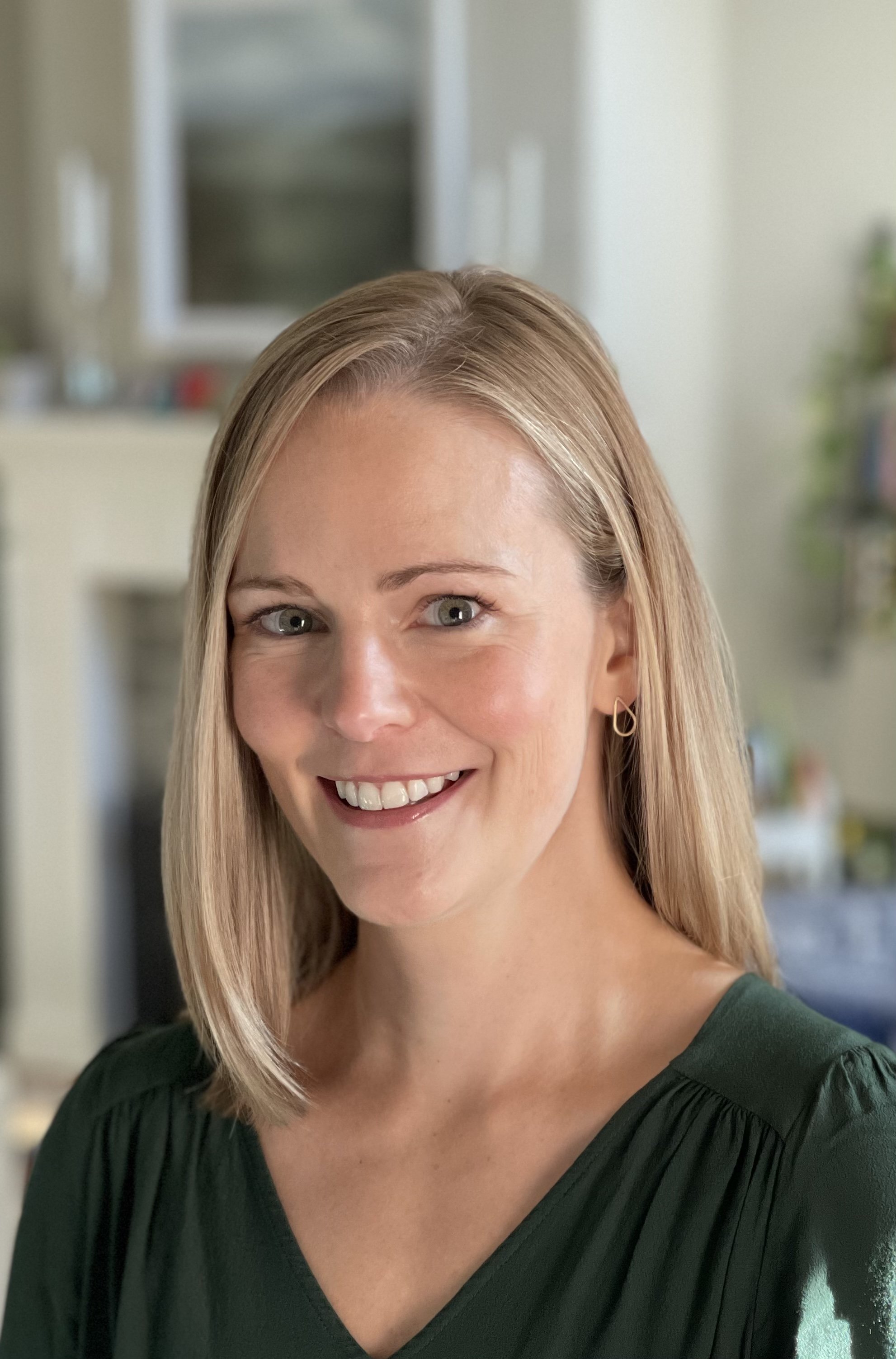
Occupational Therapy
A transformative approach to wellness and mental health recovery
Hi, I’m Natalie.
I believe that what we do every day matters. What we do in one moment influences how we feel in that moment and the next. We gain momentum with each positive step, and during challenging times, we learn to show ourselves compassion, gain insight into what we need in that moment, and find the courage to begin again.
Wellness is a spiral. Being intentional with our time and routinely engaging in healthy-promoting and personally meaningful activities gives us the opportunity for power and control over our well-being and quality of life.
My goal is to support you in realizing the power you have over your life, in spite of your challenges and circumstances.
-
My husband, Bill, and I have two vibrant young boys who keep us smiling and busy. While our roots are in Cincinnati, Ohio, our family moved to Northwest Arkansas in Spring 2022. During our free time, we enjoy staying active, being outdoors, seeing live music, connecting with family and friends, trying new things, and DIY creative home projects.
-
Master of Occupational Therapy, Xavier University with Honors (2013)
Bachelor of Science in Psychology, Xavier University with Honors (2004)
Certifications:
-ADHD-Clinical Rehabilitation Services Provider (ADHD-RSP)
-Safe & Sound Protocol (SSP)
-Mindfulness-Based Stress Reduction (MBSR)
Post-graduate training and continuing education in Lifestyle Redesign, Home Modifications, Trauma-Informed Care, Motivational Interviewing, Nature-Based Therapy, Yoga Therapy, Trauma-Informed Yoga, Cognitive-Behavioral Therapy, Dialectical Behavior Therapy
-
10 years of clinical experience as a licensed and board certified occupational therapist
Experience working as an OT in adult and pediatric mental health, early intervention, and schools
International travel, work, and volunteer experience in Australia, Mozambique, Japan, and Guatemala
Natalie Freeman, MOT, OTR/L Occupational Therapist | Founder
As an occupational therapist, I help you look at how you ‘occupy’ your time and the impact it has on your health and wellbeing. Are your daily activities and environment supporting your wellness and the life you want? Can you imagine what a better life looks like for you?
Occupational therapy is active in nature. Depending on your goals and interests, we might use daily/weekly planning and scheduling, goal setting, creative projects, journaling, movement, yoga, meditation, walking outdoors, or organizing or modifying your living space to meet your needs as part of our therapy sessions. The act of doing a meaningful activity provides the opportunity to practice mindfulness, creates a feeling of accomplishment and confidence, helps you develop new skills and interests, and gives you a break from the heavy thoughts you carry with you.
Focusing on you and your natural environment, the benefits of therapy transfer to your daily life more quickly and sustainably. Habits and routines are more easily established. Contextual and environmental influences are more easily considered. Ultimately, you feel better more of the time, in your daily life, outside of therapy.
Occupational therapy is a healthcare profession that helps individuals overcome challenges and limitations to live their best possible life. Occupational therapists help clients develop, recover, improve, and maintain skills needed for daily living through the therapeutic use of everyday activities.
What is Occupational Therapy?
Meaningful Participation
Occupational Therapy supports participation in every area of life, including:
Education — study skills, material organization, modifications to learning environment
Leisure/Play — hobbies, interests, activities that are enjoyable and intrinsically motivated (you do them because you enjoy them)
Work — job readiness, professional behavior, time management, productivity, planning skills
Social Participation — maintaining relationships, conversation skills, making new friends, navigating conflict and boundaries
Activities of Daily Living — bathing, hygiene, dressing, eating
Instrumental Activities of Daily Living — meal planning and preparation, shopping, managing money, household management
Sleep and Rest — sleep hygiene, self-care, relaxation
Health Management — making appointments, filling prescriptions, maintaining diet/exercise routines, avoiding hazardous substances
Occupational Therapy for Mental Health
Occupational therapy offers a unique skill set that is needed in mental health care. Individuals with chronic mental health conditions often continue to struggle to function in their daily lives despite taking medications and/or participating in psychotherapy. Others need support with cognitive skills, such as executive functioning, or sensory processing in order for other interventions to be effective.
The inability to engage in meaningful life activities, whatever the reason, profoundly and negatively impacts one’s mental and physical health, wellbeing, and quality of life. Occupational therapists consider the whole person — mental, physical, emotional, social, and spiritual, the person’s environment, and the activities the person wants and needs to do each day in order to live a satisfying life.
Harnessing a person’s strengths and intrinsic motivation, occupational therapists use everyday activities as the means to develop the skills that will enable a person to get beyond their disability or limitations. It is an active, experiential therapy where the person experiences the benefits of doing something that is meaningful and purposeful to them.
Occupational therapists are experts in understanding how a person’s environment can promote or hinder their ability to perform certain activities and engage in daily routines. Using practical, creative, and innovative solutions, OTs can modify a person’s home, work, school, or other space so it supports wellness and enables participation in daily life.

“The actual doing of occupations is believed to be transformative… promoting adaptation, creating personal and social identities, connecting people to their communities, and enabling on-going personal growth and development.”
— American Occupational Therapy Association


